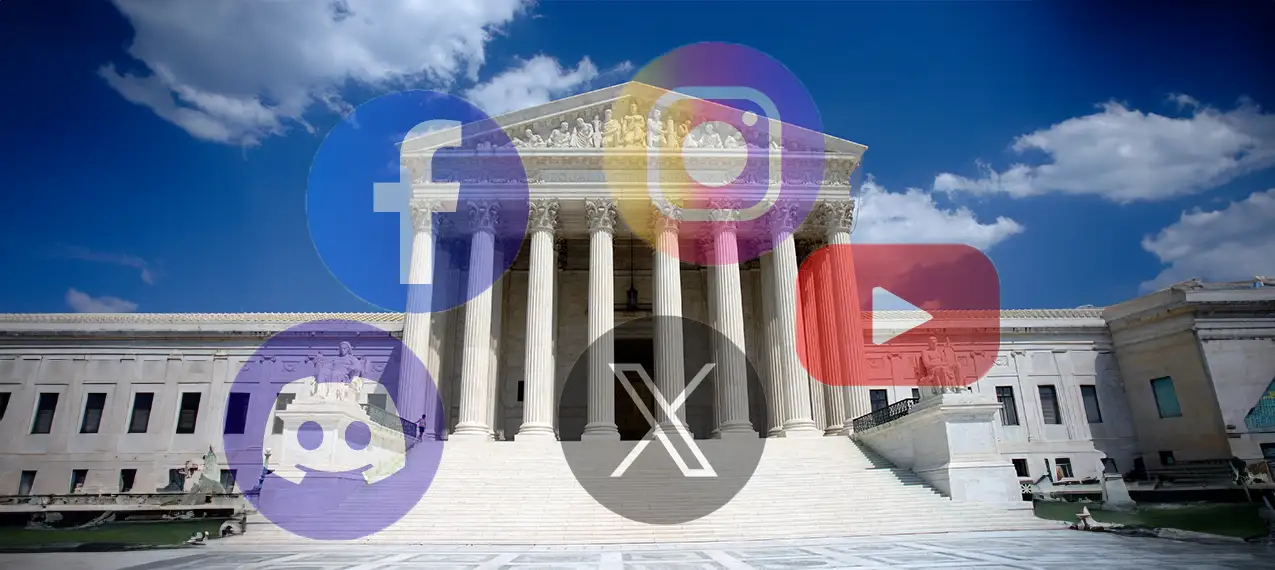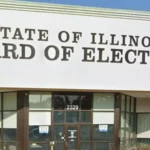
On Tuesday, October 31st, the Supreme Court heard oral arguments in two free speech cases. In the first, O’Connor-Ratcliffe v. Garnier, the Supreme Court considered whether public officials engage in state action when posting, removing comments, or blocking individuals on social media. Michelle O’Connor-Ratcliffe was a member of the Board of Trustees in Poway, CA, who posted occasionally about school-board related business. The Garniers frequently criticized O’Connor-Ratcliffe, who eventually blocked them from her page. The Garniers sued, accusing O’Connor Ratcliffe of infringing upon their First Amendment rights.
Oral arguments focused on what test the Supreme Court should employ to determine what constitutes government action. The counsel for Ms. O’Connor-Ratcliffe, as well as counsel for the United States, argued for a narrow interpretation, suggesting that the test should be based on whether a public official is carrying out a duty or authority of their office. They also suggested that these pages could be considered private property which limits the restrictions which can be placed on government officials’ speech. In contrast, the Garniers argued that when a public official uses and maintains an ongoing social media page to post information or updates about their job, the official is engaging in state action.
The Justices appeared to favor a broader interpretation for what constitutes an official state action. They were also interested in why government officials shouldn’t just be required to post a disclaimer when they post as a state official rather than a private person. Justice Jackson returned to point several times, wondering why it was not incumbent on the government to be clear when officials were acting in their personal or state capacities when posting. Justice Kagan pushed counsel for the United States to define what constitutes a duty of a public official and why something that is not required by law might not be considered a duty of a public official even if it is customary.
In the second, Lindke v. Freed, the Court tackled a similar issue. James Freed was a city manager of Port Huron who occasionally posted professional information and updates on his personal Facebook page. Kevin Lindke frequently commented on his page, criticizing Freed for his handling of the Pandemic. Freed ultimately blocked him, which Lindke argued violated his First Amendment rights.
Oral arguments again centered on what test the Supreme Court should employ to determine what constitutes government action. Counsel for the petitioner, Lindke, argued for a broad and mailable test, contending that establishing a social media page as a place for continuing contact with the public about one’s job makes any activity that involves limiting access to the entire page state action. Counsel for the respondent, Freed, as well as counsel for the United States, argued that this would chill free speech for government employees, and argued for a narrow test, similar to that which was set by the 6th Circuit Court. Their test holds state action occurs only when a government employee carries out a duty or acts with the authority of their position, as established by law or custom.
Justices seemed to be more convinced by Lindke’s argument, though they did want to know if the limiting factor for such a test was a certain percentage of posts on a page, and how one could arrive at that conclusion. Justice Alito asked whether there was a certain quantitative way of determining when a page was used for state action as opposed to personal posting. Justices Gorsuch also wanted to know if blocking could be considered state action if it was only in relation to harassment about personal posts. Justice Kavanaugh seemed unconvinced by the argument proffered by the counsel for the respondent, noting that while communication with the public might not be an official duty it is still an important custom of state actors.
SUPPORT LANDMARK LEGAL FOUNDATION
We are truly facing existential threats to our individual rights and liberties, the Constitution, and our national character. If unchallenged, this assault on our very way of life will ruin our great nation. With your financial and moral support, Landmark is not going to let that happen without a fight. Will you join us?
JOIN OUR MAILING LIST
Never miss an update from Landmark Legal Foundation as we continue the fight to preserve America’s principles and defend the Constitution from the radical left.
Landmark will NEVER share your contact information and we will not flood your inbox.





